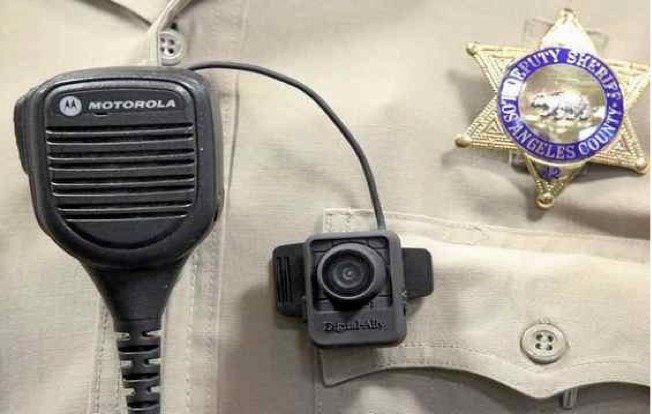CommentsGUEST COMMENTARY--In recent years' videos of law enforcement in action have become commonplace. Departments have adopted video cameras to record their deputies and officers in action, bystanders have posted cellphone videos of police action, and surveillance cameras have captured images which have been replayed on local and national media.
Cameras have proven to be another tool to improve officer safety and accountability, enhance training and improve prosecution of criminal cases. Review of videos by officers has proven valuable in the accurate documentation of criminal activity as well as an enhancement to subsequent testimony and presentation of evidence in court.
We expect video recordings will increase deputy sheriffs' effectiveness by documenting crimes and refuting frivolous claims of police misconduct. Time and again, we have seen that some of the best evidence against made-up tales of law enforcement abuse is the complete, unedited video footage of an incident captured in its entirety and with proper context.
In this age of videos, one concern that law enforcement leaders now face is that the public believes that they know the whole story after a snippet of video on from an incident is captured posted online or shown on television. Unfortunately, while outwardly compelling videos images tell only part of the story, they often do not depict what occurred before and after an incident. Those few moments in time do not provide context and may not reveal the subtleties behind an encounter, what led up to it and the totality of what occurred during it. It is understandable that for most people a collage of images might be all they need to pass judgment, and this leads to a disconnect as to why law enforcement leaders and prosecutors cannot come to the same quick judgment.
The narrow scope of a video lens cannot show a deputy's perception of what occurred or in some cases what actually occurred. Cognitive science research has clearly demonstrated that perceptions and memories are not literal representations of reality, and a deputy's behavior is affected by our perceptions of reality not necessarily reality itself. A peace officers' actions reflect their perception of the event from their point of view.
Videos, whether they be cell phones or body cameras are a tool to document events; they are not the whole story. Interactions with the public, particularly stressful situations such as uses of force, are dynamic and deputies are not able to stop and take notes or record information as cameras can. That is why we have long been a strong proponent of having deputies review videos of incidents before writing their report. Viewing a video allows them to recall details more accurately or at the very least account for those details they didn't perceive or do not remember. The fact that something is recorded doesn't mean the entire context of an event is captured, as this New York Times video documents.
A complete airing of all the facts can often end up in a different conclusion. For example, as video of three LAPD officers led to public outcry and a civil lawsuit, a federal jury later unanimously rejected the civil rights lawsuit after examining all the facts, and not just focusing on the most sensational piece of video "evidence." In another high-profile case, after repeated airing on television, it was later revealed in court that a video used by a gang member and his attorney to smear the good names of two honest police officers had been doctored.
We certainly do not quarrel with the use of videos. In fact, they often provide key evidence which can exonerate deputies and officers in the face of questions regarding the use of force actions or claims of misconduct While on television crimes can be solved in in an hour, the intricate legal issues often seen on videos, including those related to law enforcement training, department policies and procedures, control and perception, take more than an hour to analyze.
Despite their usefulness, it is critical that everyone understands that videos have limitations. Videos are only part of the evidence in an incident, not "all the evidence." This key point needs to be remembered every time there is a claim that a snippet of video "proves" what happened in any incident.
(The Association for Los Angeles Deputy Sheriffs (ALADS) is the collective bargaining agent representing more than 7,900 deputy sheriffs and district attorney investigators working in Los Angeles County.)
-cw
Explore
Our mission is to promote and facilitate civic engagement and neighborhood empowerment, and to hold area government and its politicians accountable.

 CityWatch Los Angeles
Politics. Perspective. Participation.
CityWatch Los Angeles
Politics. Perspective. Participation.
12
Wed, Mar















